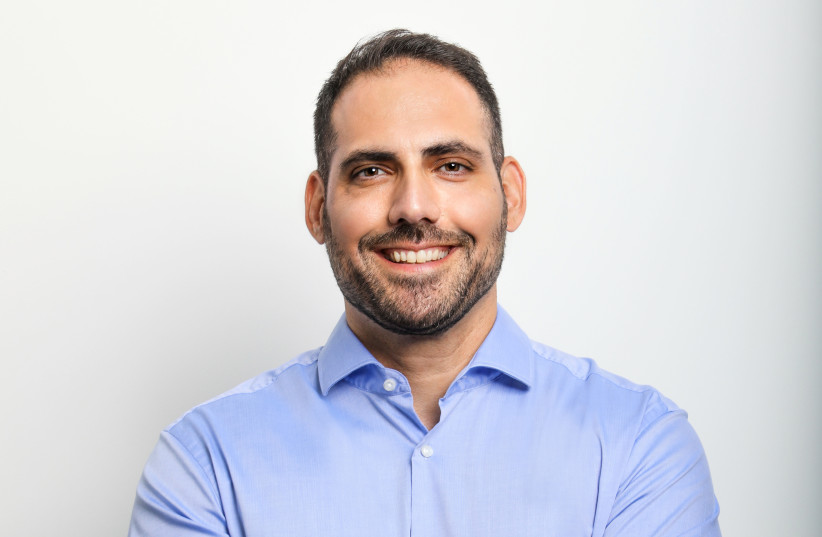As Artificial Intelligence continues to improve, it isn’t uncommon to hear someone give voice to the concern that it may eventually eclipse human capability. The bad news is that that’s already happened in several fields like computation and data processing, and the same is occurring elsewhere, from creative applications to medical ones.
The good news is that, even though our computers are getting better than us at a lot of things, there is yet no serious risk of AI replacing us. As noted by Stanford professor and AI21 Labs co-founder and co-CEO Yoav Shoham: “One of my colleagues said about general medicine that AI won’t replace radiologists, but radiologists who use AI will replace radiologists that do not.”
The idea that AI is the key to unlocking the next level of specialist ability is at the core of several start-ups and companies in Israel. One such company is ForSight Robotics, a medtech company that has developed ORYOM, a robotic surgery that enables surgeons to perform eye surgeries more precisely. The procedure co-performed by the robot is both high in demand and requires precision and expert execution. To that end, ForSight uses AI-driven computer visualization and machine learning to collect information from thousands of procedures, which can then be used to help surgeons improve their technique.
ForSight also uses AI to monitor surgical scenes and provide guidance and alerts to operating surgeons during the operation in order to maximize efficiency and quality.
ForSight’s president and Chief Medical Officer Dr. Joseph Nathan is a firm believer in AI’s ability to elevate operations without replacing the person operating it. “AI will not replace surgeons. It will empower surgeons to do better procedures. It will empower surgeons to perfect their procedures,” he agreed.
"AI will not replace surgeons. It will empower surgeons to do better procedures."
ForSight Chief Medical Officer Dr. Joseph Nathan

That said, Nathan noted that he doesn’t believe that Shoham’s full statement rings true to the surgical field, as even surgeons without AI helping them will always have a place in the field, largely due to the fact that we need so many of them. “There's a [large] need for surgeons and that will not change. There's a huge gap today in the number of patients that need the [cataract correction] procedure and the number of surgeons available to do it.”
Could all surgeons benefit from AI?
However, that isn’t to say that the proliferation of AI in the surgical sector won’t serve to benefit all surgeons. For one, Nathan pointed out, Artificial Intelligence is one of the tools that can help close the aforementioned gap between the number of surgeons and the number of patients in need of surgery — not by creating more surgeons, but by expediting the surgery process and making existing surgeons more available.
“Introducing AI will grant the ability to be more efficient and to do more procedures more accurately,” he said. He further explained that the technology enables the rapid and widespread collection and dispersal of data from the most expert surgeons, which in turn allows surgeons everywhere to improve their own technique, drastically raising the quality of procedures everywhere.
“We're kind of breaking boundaries and silos, giving surgeons the ability to learn through AI and perfect their procedure. And we're saving time and money, empowering surgeons to give better outcomes for patients,” Nathan said.
AI in the health sector reaches in all directions
As mentioned, surgery is not the only field in which AI’s supplemental value is being developed. AI21 Labs, Shoham’s company, is currently developing an AI-driven platform that assists users in both reading and writing. AI21’s other co-founder and co-CEO, Ori Goshen, pointed out that Artificial Intelligence offers a lot of benefits to creative fields, but it’s unlikely that it will ever be self-sufficient in them.
“I don't think it will really replace creators. It will put them on steroids,” Goshen said. “They'll have more ideas, and they will be able to test or think through ideas much more quickly because they have a machine that amplifies and translates their thoughts into reality. And more often than not that reality will need to be edited. You won’t get a final product from the machine. It's something that needs to be worked on. So even in the creative realm, you’ll see a lot of human-machine collaboration.”
While today’s AI narrative may be geared toward specialists and artists, however, tomorrow’s will likely encompass a much wider spectrum of use cases. “In time there will be a shift into more productivity use cases,” explained Goshen. “It won't be just for creators; it will be broadly applicable for use by basically everyone who uses a computer.”
